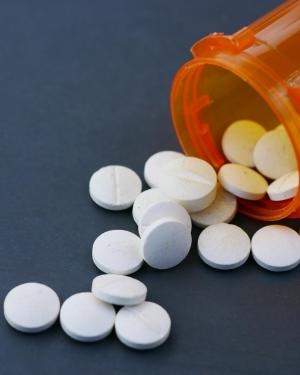Opioid Deaths in Oklahoma: What You Can Do

As medical and healthcare industry experts and legislators continue to debate whether the United States is finally seeing a national trend toward a decline in opioid deaths, one thing is for certain: opioid-related hospitalizations and deaths continue to be a serious problem in Oklahoma.
According to the Oklahoma State Department of Health, overdose from fentanyl or other opioids accounted for more than 1800 Oklahomans’ deaths between 2019 and 2022. Each of those deaths represents someone’s loved one and a life cut too short.
Understanding the Opioid Crisis
When necessary, opioids can be a valuable tool for managing pain. But serious problems arise when these medications are overprescribed or prescribed without providers taking steps to ensure they are taken safely.
The Sackler family, who own Purdue Pharma, contributed to an opioid overprescription epidemic after the company’s 1995 release of OxyContin, a drug that would generate $35 billion in revenue and lead to the family’s wealth at one point reaching a collective net worth of $13 billion.
A synthetic drug with an active ingredient that has twice the potency of morphine, OxyContin is the type of drug that should be prescribed carefully and only for severe pain, cancer, and end-of-life care. Instead, Purdue encouraged their paid doctors and sales reps to downplay the drug’s severity, causing the number of prescriptions — along with Purdue’s profits — to skyrocket.
These are just some of the ways Purdue Pharma played a significant role in precipitating the opioid crisis:
- Misleading marketing
- Pressuring doctors
- Offering financial incentives
- Downplaying addiction risks
A flood of lawsuits against Purdue Pharma resulted in the company filing Chapter 11 bankruptcy in 2019. But as part of that deal, the Sackler family was granted immunity from civil lawsuits, making it even harder for loved ones of those harmed by their actions to hold the family and company accountable. Although the Supreme Court would end up rejecting that deal in June 2024, this has reset the bankruptcy negotiation process and will likely lead to an even further delay in justice for many families already involved in lawsuits against Purdue.
Preventing Opioid Deaths
If you are concerned about opioid addiction and death, here are some steps you can take to protect yourself and your loved ones:
- Have an honest conversation with your doctor about pain management options and discuss your concerns.
- Keep your medications stored securely.
- Dispose of medications safely.
- Never share your medications with anyone.
- Seek help if you are struggling with opioid addiction.
- Keep Naloxone (Narcan) handy for opioid overdose reversal.
Talking With Your Doctor
Although opioid addiction or overdoes is an understandable cause of concern, sometimes your doctor might feel these medications are the best course of action for your medical condition.
Here are some important questions you can ask your doctor if you’re prescribed an opioid:
- What side effects should I expect?
- Do I have any conditions that might contribute to risks when using this medication?
- Is there anything I need to avoid (like driving) while taking this medication?
- When should I call my doctor?
- What is the safest and best way to dispose of this medication when I no longer need my prescription?
- Should I also be prescribed Naloxone?
Securing and Disposing of Pain Medications Safely
Many prescriptions used for non-medical purposes are picked up and diverted by someone who found them carelessly stored in a medicine cabinet or drawer. Keep your medications locked away in a place where only you can access them. Be especially careful if there are children or pets in your home.
Once you no longer need your medications or they have expired, you can safely dispose of them in one of several ways:
- Use the medication disposal kiosk at your local drugstore.
- Participate in a local medication takeback day.
- Check to see if your medication is on the FDA flush list.
Naloxone Distribution Programs
To help reduce the number of opioid-related deaths, harm reduction programs are available in many cities that include free distribution of Naloxone, also known as Narcan, inhalers. These small inhalers can be quickly administered when a drug overdose is suspected.
Whether you are prescribed an opioid medication or you know someone who may be at risk of an opioid overdose, these inhalers are a lifesaving tool that it pays to keep on hand.
Legal Recourse for Opioid Addiction or Wrongful Death
If you or a loved one has suffered harm from a pharmaceutical company or a negligent medical professional, you may have legal options including a medical malpractice or wrongful death lawsuit.
To learn what your options are, contact Tim Gilpin, attorney at law.
